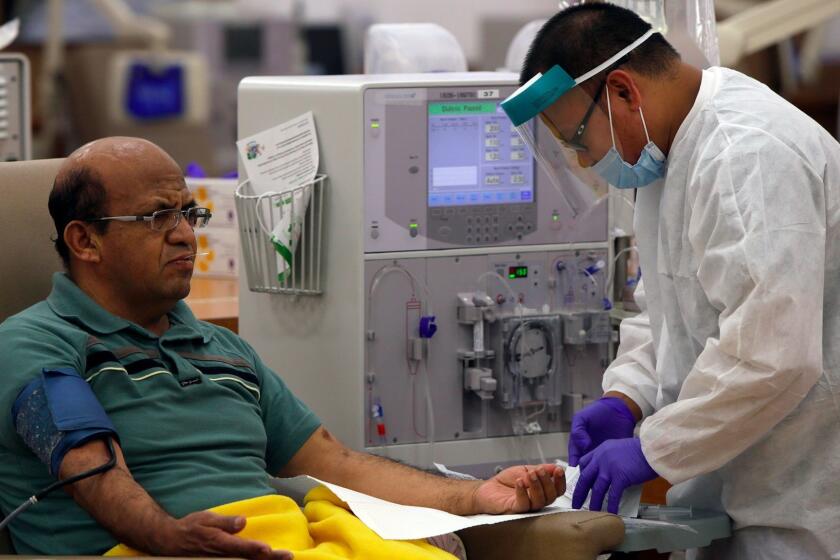As Prop. 29 vote looms, dialysis patients brace for change
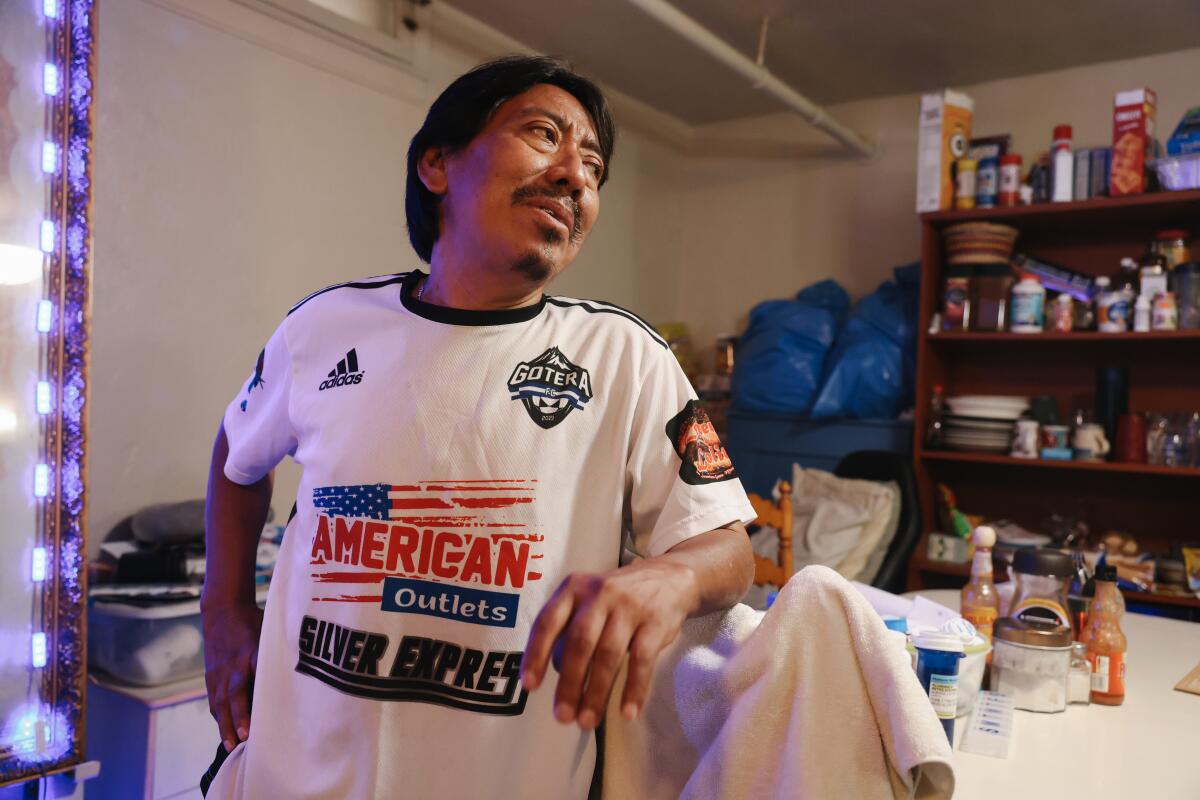
- Share via
Socorro Reyes could feel himself getting sleepy as his blood pressure dropped.
He was at his usual Friday morning treatment at a DaVita dialysis center. Reyes had settled into his chair to tune into a religious station to listen to Mass. Before his appointment ended, the dialysis machine started beeping and a technician came over to shift his position and Reyes had to tell them what was happening. He often feels as if the nurses and technicians are not always paying attention.
If a doctor were there, he said, “they would have immediately taken action.”
“I’m really interested in a lot of changes in dialysis clinics, because the treatment at times doesn’t feel adequate,” he said. “Doctors aren’t going to see patients. Some of the technicians only know how to connect us [to the machine]. If someone gets sick, they don’t know what to do.”
For the third time, Californians will have a chance next month to vote on whether to make sweeping changes at dialysis clinics statewide that could affect as many as 80,000 patients. Proposition 29 would require a doctor, nurse practitioner or physician assistant to be present while patients are receiving care at any of the state’s 600 dialysis centers, and require clinics to disclose if a physician has ownership interests in the facility and to report patient infection data. The upcoming vote has dialysis patients on both sides of the question bracing for how their care might change.
Opponents, including the two largest dialysis providers in the country, say the new requirements would drive up costs and lead to some centers being closed.
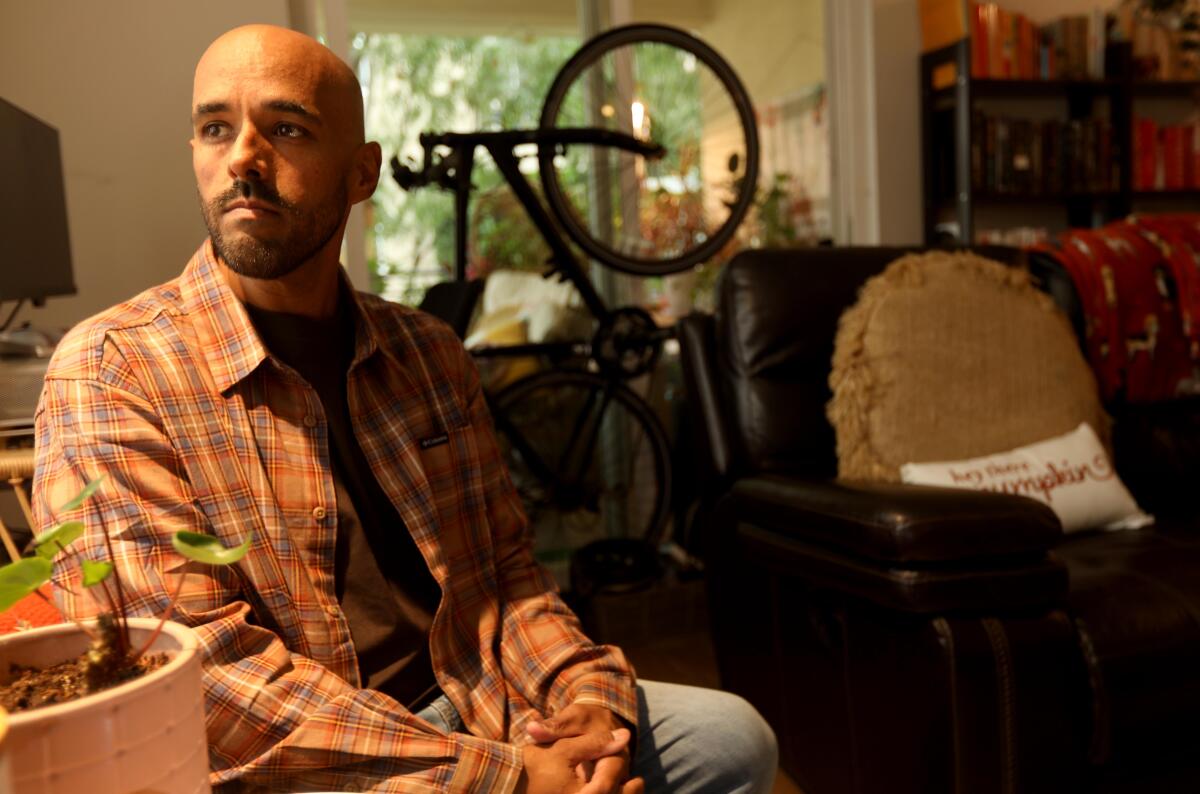
Richard Aviles, a 41-year-old dialysis patient living in Long Beach, worries that if Proposition 29 passes his clinic may close, reduce hours or change staff members. Aviles, who goes for treatment three times a week for four-hour sessions at a DaVita dialysis center, said the process to find a new clinic is often stressful for any dialysis patient because open spots are not always easy to come by.
He said he feels safe going to dialysis. He said every dialysis patient is in a vulnerable state when receiving treatment, but he doesn’t think having a doctor on hand will help.
“It would take time for me to get to know them and for them to learn my history and my family and learn how I want my care to be directed,” Aviles said. “Now, objectively, sure, more medical professionals I guess couldn’t hurt, but it just seems kind of wasteful, considering that whatever we have going is working for us.”
Among the other patients he usually notices, many are elderly, have other ailments or sleep through their treatment because that’s how they find some relief. He’s worried about what would happen to patients with more fragile health. Finding a new clinic would potentially mean going to dialysis treatment at different hours and even adjusting to how a new nurse or technician inserts and removes the inch-long needles.
“It’s not an easy thing to just change your sleep schedule around and get acclimated to the rules of the new clinic and to the rhythms of different personnel and just even the application of the needle that they use,” Aviles said.
Patients are recommended to receive dialysis treatment after being diagnosed with end-stage kidney failure, when they have lost 85% to 90% of their kidney function. Dialysis prevents waste, salt and extra water from building up in patients’ bodies; keeps potassium, sodium and bicarbonate and other chemicals at safe levels in their blood; and controls their blood pressure, according to the National Kidney Foundation.
In 2017, there were unsuccessful efforts in the California Legislature to mandate a staffing ratio in dialysis centers. After that idea was rejected, there’s been a continued push to have Californians vote on iterations of how the dialysis patient population is cared for. That includes the failed Proposition 8 in 2018, which would have capped revenues at dialysis centers, and Proposition 23 in 2020, which would have required dialysis clinics to have at least one doctor on-site while patients are receiving treatment.
For the record:
9:34 a.m. Oct. 28, 2022An earlier version of this article stated that Proposition 23 in 2020 would have required dialysis clinics to employ at least one doctor. The proposition would have required clinics to have at least one doctor onsite while patients are receiving treatment.
Cracking down on clinics treating Californians with chronic kidney disease has been a top legislative priority this year for unions representing healthcare workers.
With Proposition 29, the unusually population-specific ballot measure has once again pitted the Service Employees International Union-United Healthcare Workers labor group, which supports the measure, against major dialysis providers such as Fresenius Medical Care and DaVita in another multimillion-dollar showdown as voters prepare to vote in the Nov. 8 election.
Voters are often skeptical about ballot initiatives that they have no expertise in, says Mark Peterson, interim chair of the Department of Public Policy at UCLA’s Luskin School of Public Affairs. With Proposition 29, Peterson said, voters are being asked to get into “high levels of technical detail” about the levels of medical care dialysis patients need. He said the special interest dispute between SEIU-UHW and the dialysis centers is likely why voters have rejected previous efforts.
“When there is a special interest from one side or the other that’s really pushing a particular ballot initiative, voters add on to their underlying suspicion this general skepticism of why is the ballot initiative process being used by a special interest?” Peterson said.
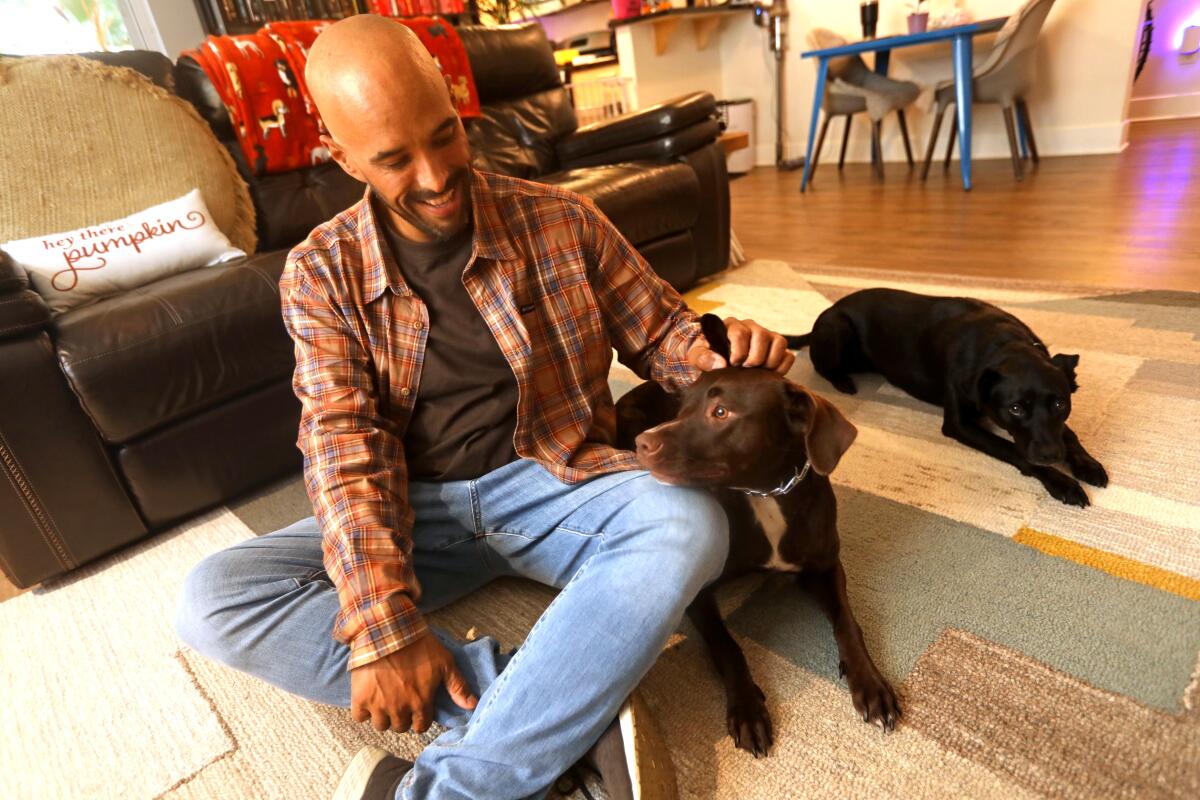
Proponents of Proposition 29 have said the new rules are designed to keep dialysis patients safe and to hold dialysis providers accountable. They point out that multiple states, including Georgia, Louisiana, Maryland, Massachusetts, New Jersey, Oregon, South Carolina, Texas and Utah, have staff-to-patient ratio requirements at dialysis clinics.
David Miller, research director for SEIU-UHW, said the group denies accusations about using the proposition system to unionize dialysis center workers. He said the proposition is not designed to dictate what doctors may do on-site or how they would oversee care.
He said dialysis patients have expressed concern that the centers lack adequate staff if something goes wrong with a patient. He pointed out that earlier this year SEIU-UHW filed an administrative complaint alongside other groups and patients with the U.S. Department of Health and Human Services about the disparate impact of dialysis on Latino and Asian patients.
Miller said that Proposition 29 is “a strong ballot measure” and that asking voters to weigh in on whether more staff should be required at dialysis clinics is not as complicated of a question as opponents say it is.
“I feel like they keep trying to turn it and make the conversation about us, [when] their motivations are to take money from employers and from patients and people who are insured in California and do stock buybacks and dividends and take all that money that should be spent for quality of care, and give it to extremely rich people,” Miller said.
Typically, nurses and technicians at dialysis centers already have contact information for each patient’s doctors, said Dr. Nadreen Tareen, an associate professor with Charles R. Drew University of Medicine and Science.
The dialysis technicians are responsible for hooking patients up to the machines, and nurses provide care too. Tareen said the doctors of dialysis patients are typically on call for the three- or four-hour windows during which patients receive treatment in case something goes wrong. Federal regulations require physicians to see their dialysis patients at least once a month, but Tareen said patients typically see their doctors more often than that.
“You don’t have to be there to tell them what to do,” Tareen said. “You can even tell them, ‘This is what you need to do,’ and if any patient crashes, then you just call 911 like anywhere else.”
The No on Prop 29 campaign has a long list of medical industry associations opposing the ballot measure, including the California Medical Assn., the American Nurses Assn.’s California chapter, the American Academy of Nephrology Physician Assistants, which represents dialysis technicians, and multiple dialysis patient advocacy groups. Opponents say paying for increased staff could lead to clinic closures.
Jeff Goffman, chief executive of Satellite Healthcare, said he worries about how the company’s clinics will survive Proposition 29 if they have to pay for more staff to be there. The majority of the nonprofit provider‘s dialysis clinics are in California, where more than 6,800 patients are served across 77 facilities. Most of Satellite Healthcare’s patients have their dialysis treatment paid for through Medicare, Medicare Advantage or Medi-Cal.
Goffman said a potential increase of hundreds of thousands of dollars in staffing is risky for a nonprofit like his, where much of the revenue is from government programs. He said that many of the patients served are people of color, and that the majority have comorbidities such as high blood pressure, obesity or heart disease.
“It’s a risk to an underserved population, because it is certainly a risk to access to care, and a racial inequity issue when we look at that population of patients that get treated with dialysis,” Goffman said. “Unfortunately, nonprofits like Satellite will just be collateral damage.”
Fresenius Medical Care and DaVita, two of the largest dialysis providers in the country, also oppose Proposition 29. Both companies have been major spenders during the campaign cycle to defeat the proposition. When contacted for comment by The Times, representatives of the two companies used similar wording in separate emails that they’re part of a “broad coalition” of people and organizations. Both directed The Times to speak with the No on Prop 29 campaign directly.
Kathy Fairbanks, a spokesperson for No on Prop 29, said voters and dialysis patients are confused on why dialysis keeps showing up on the ballot.
“Dialysis patients keep getting stuck in the middle of these ballot measures, and SEIU-UHW claims they’re doing this to help patients,” Fairbanks said. “But putting them in a situation where they’re scared every two years about where they may or may not get dialysis is terrifying, because if you have failed kidneys, you have to have dialysis or you will die.”
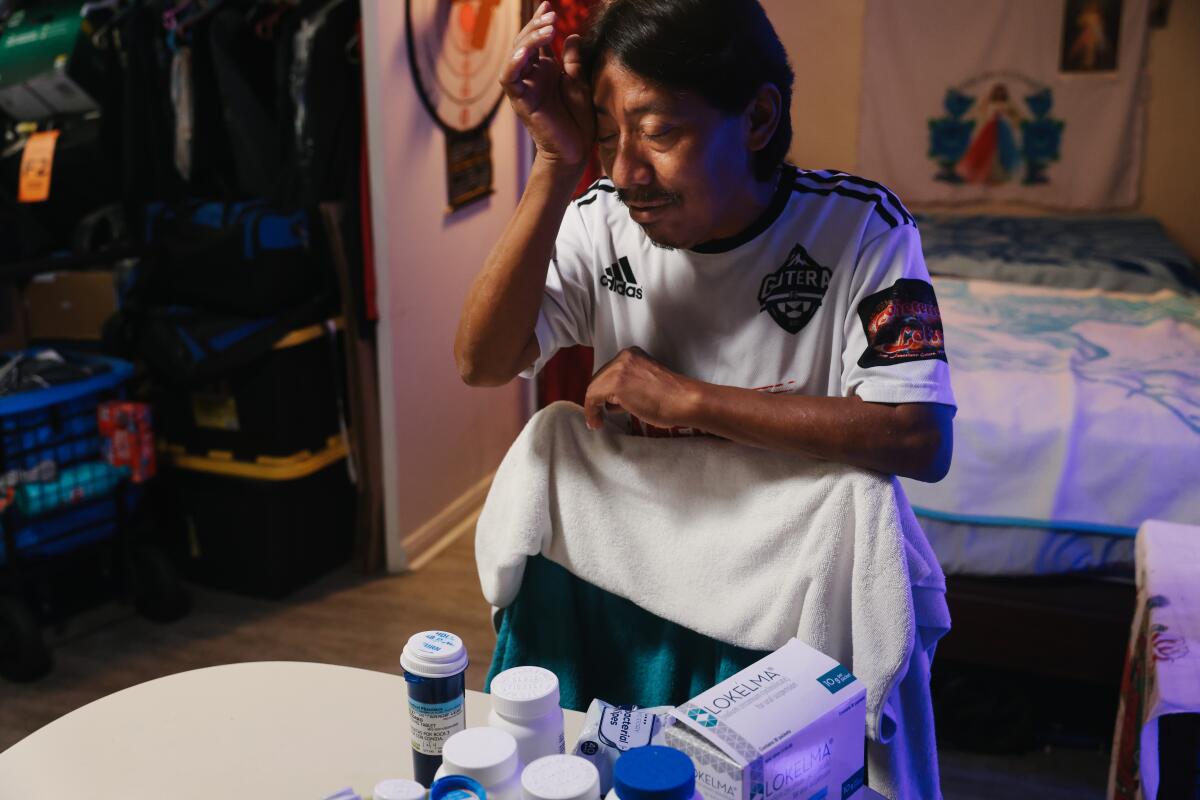
Reyes is well aware of the fear that arises from the life-threatening dangers associated with kidney disease, which is why he supports Proposition 29.
Reyes was diagnosed with diabetes in 1996. He was suffering from high blood sugar and kept needing to use the restroom. He started on medication, but when it began to affect his work as a machine operator he stopped. But the diabetes got worse, affecting his eyesight. He started dialysis in 2018.
“A lot of people ask me, what’s the treatment like, what do I think?” he said. “I take advantage to tell them my errors and why I’m on dialysis. I’ve told people that, when you feel something, don’t wait. Because I waited, and look where I’m at.”
In May, he went home to El Salvador to visit his mother. During his two-week visit, he went to seven dialysis treatments. He said a doctor was there in the clinic all day, ready to attend to patients if something went wrong.
He said Proposition 29 is the only way for things to change, because the companies will not change on their own.
“I hope to God this proposition passes and they make changes,” Reyes said. “We’re the ones who are suffering in the clinics. People who aren’t living this, they’re not interested.”
More to Read
Sign up for Essential California
The most important California stories and recommendations in your inbox every morning.
You may occasionally receive promotional content from the Los Angeles Times.
